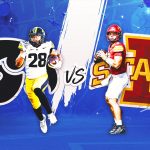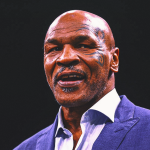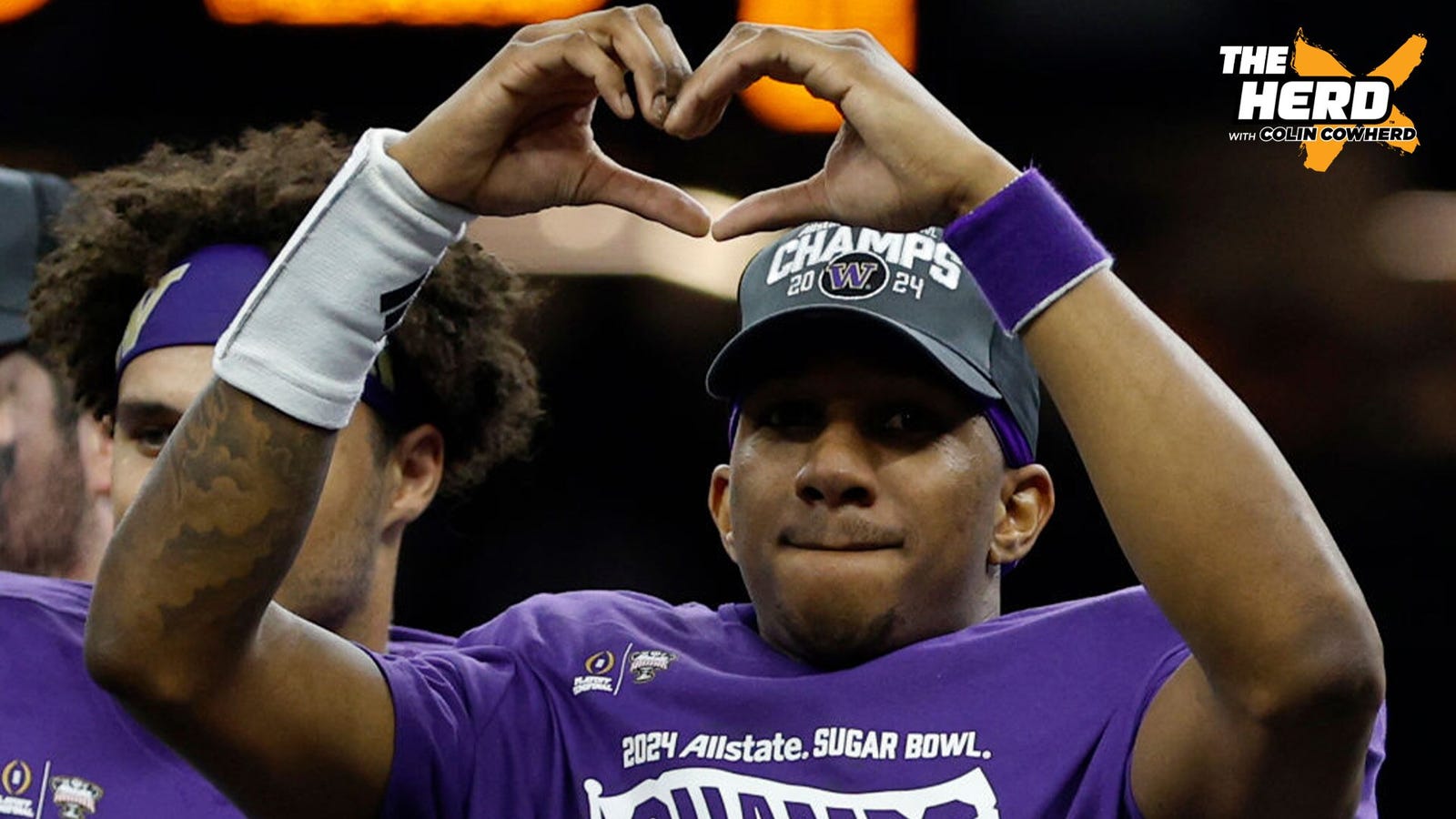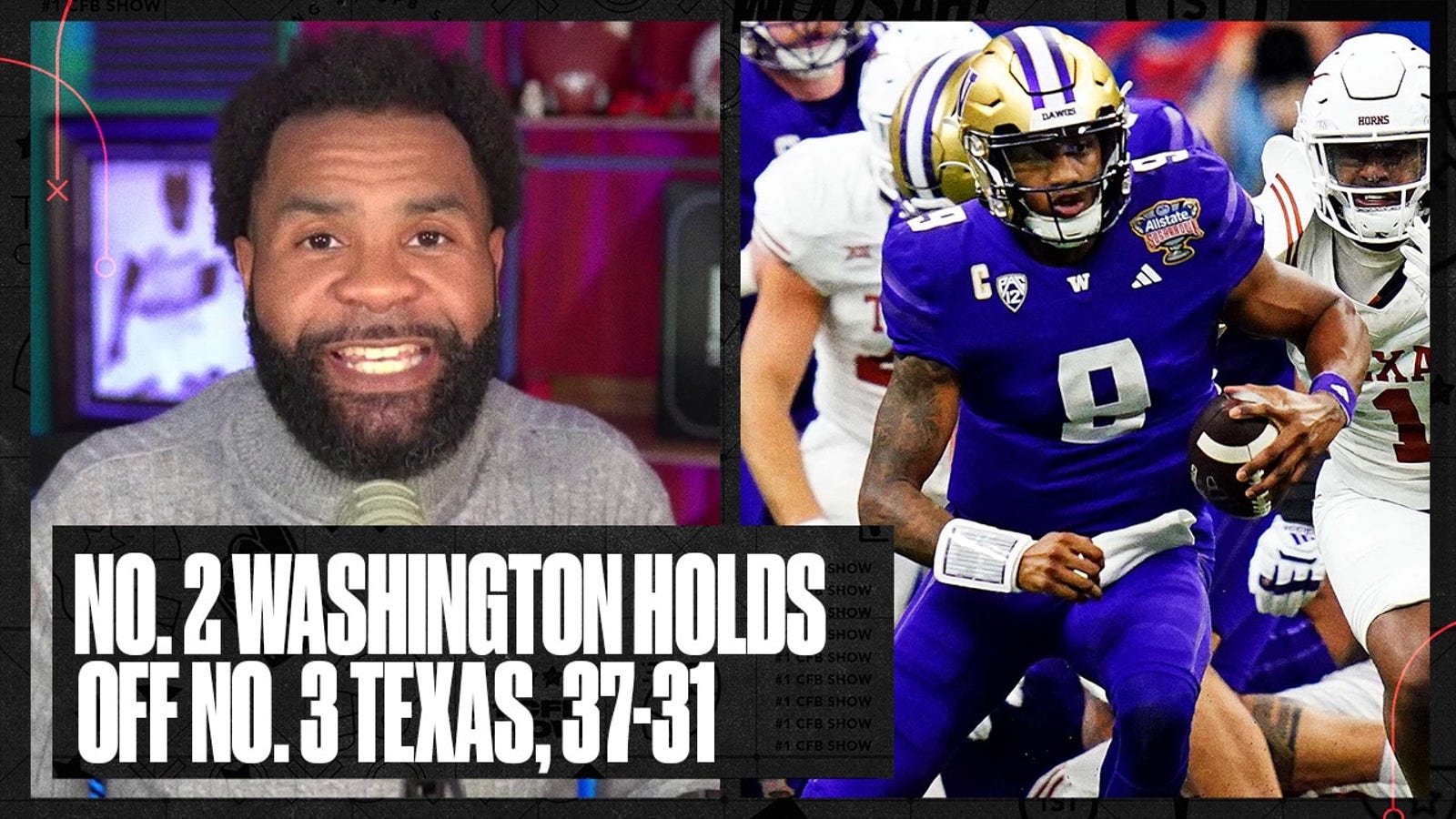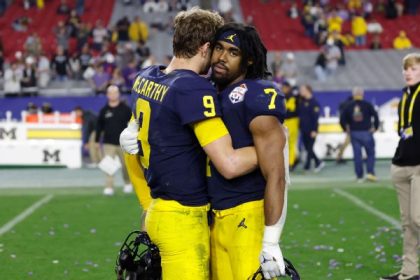After just two seasons as a Husky, Michael Penix Jr. has a chance to leave Washington as one of the most decorated quarterbacks in school history and perhaps the best player the university has ever produced.
But when he takes the field against No. 1 Michigan in the College Football Playoff National Championship Game on Monday (7:30 p.m. ET, ESPN), seeing him in Washington purple could remind some of one of the greatest QBs in the history of football: Warren Moon.
In 2006, Moon became the first Black quarterback — and the first undrafted QB — to reach the Pro Football Hall of Fame, following success as a QB at Washington and then a long road to the top.
Moon has high hopes for Penix as a pro, while acknowledging there are those who doubt the 23-year-old’s ability to succeed in the NFL. Penix is older than Anthony Richardson (21), C.J. Stroud (22) and Bryce Young (22). Plus, Penix suffered two torn ACLs and shoulder injuries throughout college.
ADVERTISEMENT
“He’s not being looked at that highly right now. It really surprises me,” Moon said of Penix. “I think the top three quarterbacks right now though, two of those are African-Americans (2022 Heisman winner Caleb Williams and 2023 Heisman winner Jayden Daniels), and I think Michael would be right there as the next one.”
In some ways, Penix’s path to this moment mirrors Moon’s. But really, Moon walked so Penix and other Black quarterbacks could run.
I asked Moon just how often someone falls over themselves to tell him how grateful we are to him for what he has done for the sport, for Black folks like us.
“I do get that a lot,” he said. “And I really feel such gratitude from it. It wasn’t something I started out to do. But as I got deeper into it, I felt like, OK, maybe I’m one of the chosen ones that helps turn this whole thing around and change people’s perception of where we are as leaders and what we are as quarterbacks. And so I kind of took it on.”
I caught up with the football legend via telephone ahead of the national championship to discuss his journey and what he sees in Penix, Washington and the latest generation he inspired.
*** *** ***
Moon was a 17-year-old high school kid when he first realized his dream wasn’t that far away. He was an outstanding prep player, a quarterback, when he learned how close he was to playing on one of the sport’s biggest stages, in one of the sport’s biggest games, in his hometown.
“One of my motivating factors was watching Cornelius Greene, who was a quarterback at Ohio State when he came in to play in the Rose Bowl against USC,” Moon said. “And that was the first Black quarterback I saw play in the Rose Bowl. And so that left a mark on me.”
What’s more? He was shocked to see that QB didn’t come off the bench for his hometown USC Trojans, who’d fielded their first Black QB the year after Moon was born — 1957 — but that Greene was wearing scarlet and gray.
“[Greene] just stood out to me just because his style of play really was similar to what my style of play was at that time,” he said.
For Moon, that was one more reason he believed he could play quarterback for a major program. Greene was the first Black QB Ohio State ever had and once he took the field, Woody Hayes never took him off.
He finished his career 31-2-1, an option quarterback in a backfield that featured the only two-time Heisman winner, Archie Griffin, winning three Big Ten titles, starting three Rose Bowls and playing in four.
Moon dreamed of a career on a similar trajectory. The odds of his playing quarterback at a school with the renown of Ohio State, though, were slim. Even though he’d earned All-City and All-State honors as a quarterback at Alexander Hamilton High School, he was almost exclusively recruited to play wide receiver.
Moon wasn’t going out like that.
“I refused; I will go to Siberia to play quarterback, but I will not switch positions,” he told The New York Times.
So, in 1974, Moon was simply a talented high school quarterback who chose to play junior college football at West Los Angeles College while hoping a big-time program would see and acknowledge his ability to play quarterback at a high level.
Former Washington Huskies offensive coordinator Dick Scesniak did. He recruited and signed Moon to play quarterback in Seattle, and Moon rewarded Scesniak and coach Don James’ belief with winning when it mattered most.
In 1977, the Huskies had lost to UCLA in Los Angeles, 20-12, and were 4-4 with three games left in the season. They were 9-10 at that point dating back to the start of the previous season.
The next four opponents on the Huskies’ Pac-8 schedule included No. 17 California, No. 14 USC and Washington State in the Apple Cup. With Moon and wideout Spider Gaines leading the offense, the Huskies won all three, the Pac-8 title and clinched their first berth in the Rose Bowl in 14 years.
Their opponent in the ’78 Rose Bowl was none other than the Michigan Wolverines, led by coach Bo Schembechler, and playing for a chance to claim the national title.
The Huskies were 17-point underdogs when Moon reached the stage where he’d first seen Greene, a Black quarterback, come off the bench and lead his team to a win.
Moon’s Washington team came out firing. The Huskies took a 17-0 lead in the third quarter and held off the Wolverines’ second-half comeback attempt to win Washington its first Rose Bowl since 1961, 27-20.
Moon finished 12-for-23 for 188 pass yards with two TDs, and was named Rose Bowl MVP, along with Pac-8 Co-Player of the Year for the 1977 season.
And yet, perhaps like Penix, the NFL didn’t give him his full due.
Moon went undrafted in the 1978 NFL Draft — the same year former Grambling State quarterback Doug Wiliams became the first Black quarterback selected in the first round.
Moon spent the next five years playing professional football in Canada. As quarterback for the Edmonton Eskimos, he won five Grey Cups and was twice named Canadian Football League MVP. Still, it hurt him that the NFL didn’t recognize his ability when his college eligibility ran out.
He did not receive an invitation to the combine and did not receive real interest from any NFL franchise to be their quarterback.
“Nobody had given me a private workout,” Moon said. “I was bitter. My own country did not want me, but another country did.”
By 1984, his pro production could no longer be ignored. He eventually signed to play for the Houston Oilers and put together a Pro Football Hall of Fame career with accolades that include 1989 NFL Man of the Year, 1990 NFL Offensive Player of the Year and nine Pro Bowl selections.
***
Forty-six years after Moon’s Rose Bowl moment, another Black quarterback who has spent just two years at Washington, like Moon did, who isn’t widely considered a first-round NFL-caliber quarterback, as Moon wasn’t, will lead the Huskies into the biggest game, on the biggest stage his team has ever played on, to face favored and top-ranked Michigan team, just as Moon did.
And it’s a team that has become very close to Moon through its most important members, including Penix, coach Kalen DeBoer and offensive coordinator Ryan Grubb. Moon has spoken to the team. He’s close enough with Penix, DeBoer and Grubb to text them weekly, to encourage and congratulate Penix after each game.
He’s had a front-row seat to the Huskies’ 21-game winning streak, winning 25 of their last 27 games and will have the honor of being the last program to win a Pac-12 title before embarking on their new journey as a member of the Big Ten.
But, more importantly, the Huskies can win their first national title since 1991 — a national title that came at the expense of Michigan, too, in the 1992 Rose Bowl. Moon said it would’ve been sweet for the Wolverines and Huskies to have played in this year’s Rose Bowl, given the history of the game featuring the Big Ten and Pac-12 champions.
A national title game in Houston will have to suffice, and Moon will be there to witness it in the city where he reached his greatest NFL heights. And he feels good about their chances, especially given their penchant for playing in and then winning close games. In one-score games, against ranked opponents, the Huskies are 10-0 with Penix as their quarterback.
“Once they got in the [CFP], I knew they had a great chance because I knew they had this feeling about their team that no matter how close the game is, they found a way to win,” Moon said. “And that’s what you need to have when you’re going into a playoff like this. And that’s exactly what happened in the Texas game. They found a way to win it.
“And I think they’re gonna find a way to beat Michigan.”
Penix, the man in the purple durag and wearing No. 9 on his chest, is the one teammates want to follow because they know with him they always have a chance.
He will have opportunities that were denied to Moon through his career, though Moon is grateful he was able to contribute to that progress.
“I think Doug Williams felt the same way,” Moon told me. “I think Randall Cunningham felt the same way. We knew it was a bigger calling out there. I felt it from my people everywhere I went around the country, people telling me I got to represent, I got to represent our people. You went out there on the field with a bigger burden on your back than just the responsibility of being the quarterback for the football team.
“So, it’s something I took on, something that I knew I had a responsibility for, if this position was ever going to change for the better for African Americans, and I think it has. And I’m really proud to say I played a small part in that.”
As am I.
As are we.
More on the College Football Playoff National Championship
RJ Young is a national college football writer and analyst for FOX Sports and the host of the podcast “The Number One College Football Show.” Follow him on Twitter at @RJ_Young and subscribe to “The RJ Young Show” on YouTube.
COLLEGE FOOTBALL trending

Get more from College Football Follow your favorites to get information about games, news and more

